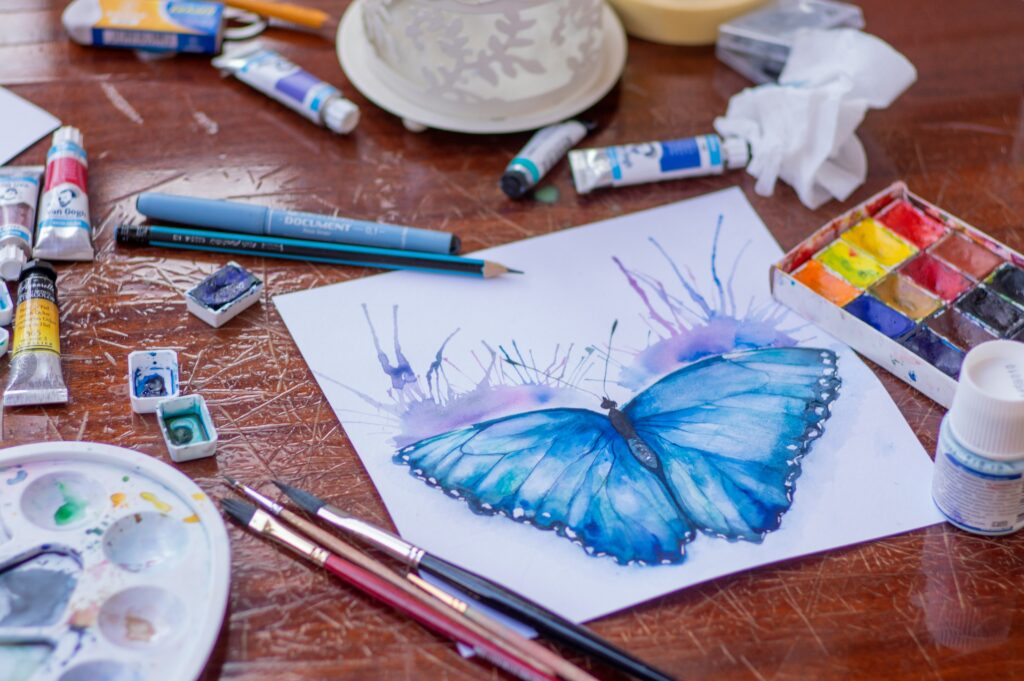Art has been a fundamental aspect of human culture for thousands of years. It transcends language, connects diverse communities, and offers profound insights into the human experience. In recent decades, art has not only been appreciated for its aesthetic beauty but also for its potential as a powerful tool for healing and self-expression. Art therapy, a burgeoning field within mental health treatment, takes advantage of this intrinsic quality of art to facilitate personal growth, emotional healing, and improved mental well-being.
Understanding Art Therapy
At its core, art therapy is a form of psychotherapy that uses the creative process of making art to improve a person’s physical, mental, and emotional well-being. Unlike traditional therapies where verbal communication plays a central role, art therapy allows individuals to explore their thoughts and feelings through creative expression. This can be particularly beneficial for those who find verbal articulation challenging, such as children or individuals who have experienced trauma.
The premise of art therapy is not to create aesthetically pleasing art but to use the artistic process as a channel for expressing emotions and discovering self-awareness. The focus is on the experience of creating rather than the final product, providing a non-judgmental space where one can explore their innermost thoughts and emotions.
The Benefits of Art Therapy
Art therapy has been recognized for its wide array of benefits, enhancing emotional resilience, providing relief from chronic stress, and offering a cathartic outlet for difficult emotions. Here are several key benefits of engaging in art therapy:
- Emotional Release: Through artistic expression, individuals can release pent-up emotions and confront feelings they may not even have been consciously aware of. For many, this release can be a vital step towards healing.
- Non-Verbal Communication: In situations where words fall short, art can serve as a vital communication tool. It allows individuals to express what might be too painful to verbalize and serves as an avenue for storytelling.
- Enhanced Self-Awareness: Creating art provides insight into personal thoughts and emotions. As individuals engage in the creative process, they can explore their own identity and understand underlying issues creating conflict in their lives.
- Stress Reduction: The repetitive actions involved in the art-making process can help soothe nerves and reduce stress, resulting in a relaxed and meditative state.
- Improved Problem Solving: The creative process encourages open-ended thinking and problem-solving, skills that are transferable to various aspects of life.
Who Can Benefit From Art Therapy?
Art therapy is a versatile therapeutic approach that benefits individuals across various age groups, including children, adults, and the elderly. It has proven effective in addressing mental health conditions such as depression, anxiety, and post-traumatic stress disorder (PTSD). By facilitating self-expression and emotional processing, art therapy aids in managing these conditions and promotes healing.
Beyond mental health disorders, art therapy supports those dealing with grief or loss by providing a creative outlet to process complex emotions. It also assists individuals with learning disabilities or developmental disorders in enhancing communication skills and self-awareness. Moreover, art therapy serves as a valuable tool for individuals coping with chronic illnesses or trauma, offering a means to express feelings that may be difficult to verbalize.
Importantly, art therapy is not limited to individuals with diagnosed psychological disorders. Engaging in artistic activities can be enriching for anyone seeking to explore self-expression, reduce stress, or connect with their personal history and identity. The creative process inherent in art therapy fosters self-discovery, enhances emotional resilience, and contributes to overall well-being.
The Art Therapy Process
The process typically begins with an initial assessment, where a licensed art therapist evaluates the individual’s needs and determines appropriate goals and objectives. Therapy sessions often involve various artistic mediums such as drawing, painting, sculpture, and collage. Each medium can introduce unique benefits—for instance, painting can enhance mood and emotional expression, while collage might help in organizing thoughts.
Art therapy can be conducted in individual or group settings. Group sessions can foster community, empathy, and collective healing, while individualized sessions allow for personal, intimate exploration.
The Evidence Supporting Art Therapy
Numerous studies attest to the efficacy of art therapy in improving mental health outcomes. According to a study published in the journal Art Therapy, participants who engaged in art therapy showed significant improvements in emotional resilience and mental functioning (Source: American Art Therapy Association Journal). Such findings affirm art therapy’s role as a valuable complement to traditional therapeutic practices.
Pursuing Art Therapy in Massachusetts
If you are in Massachusetts and seeking a compassionate, innovative approach to mental health treatment, Massachusetts Mental Health Treatment Centers offers an esteemed art therapy program among its services. Serving as a haven for creativity and healing, the center’s dedicated art therapists are committed to providing personalized care tailored to your unique experiences and emotions.
Why Choose Massachusetts Mental Health Treatment Centers?
Our facilities are equipped with state-of-the-art resources, ensuring you have all the tools you need for an enriching therapeutic experience. Our compassionate team works collaboratively to support individuals through their journey to recovery, empowering them with skills and insights gained through creative expression.
By combining art therapy with other therapeutic modalities, Massachusetts Mental Health Treatment Centers creates a comprehensive treatment plan designed to nurture holistic healing. Whether you’re grappling with mental health challenges or simply desire a more profound exploration of self, art therapy may open the doors to new perspectives and lasting change.
Get Help Today Through Our Massachusetts Mental Health Programs
If you or someone you know could benefit from art therapy, consider reaching out to the Massachusetts Mental Health Treatment Centers to explore our mental health treatment program. Our experienced therapists are ready to guide you through a creative exploration that can lead to transformative personal growth. Don’t hesitate to get in touch and begin your healing journey today!











